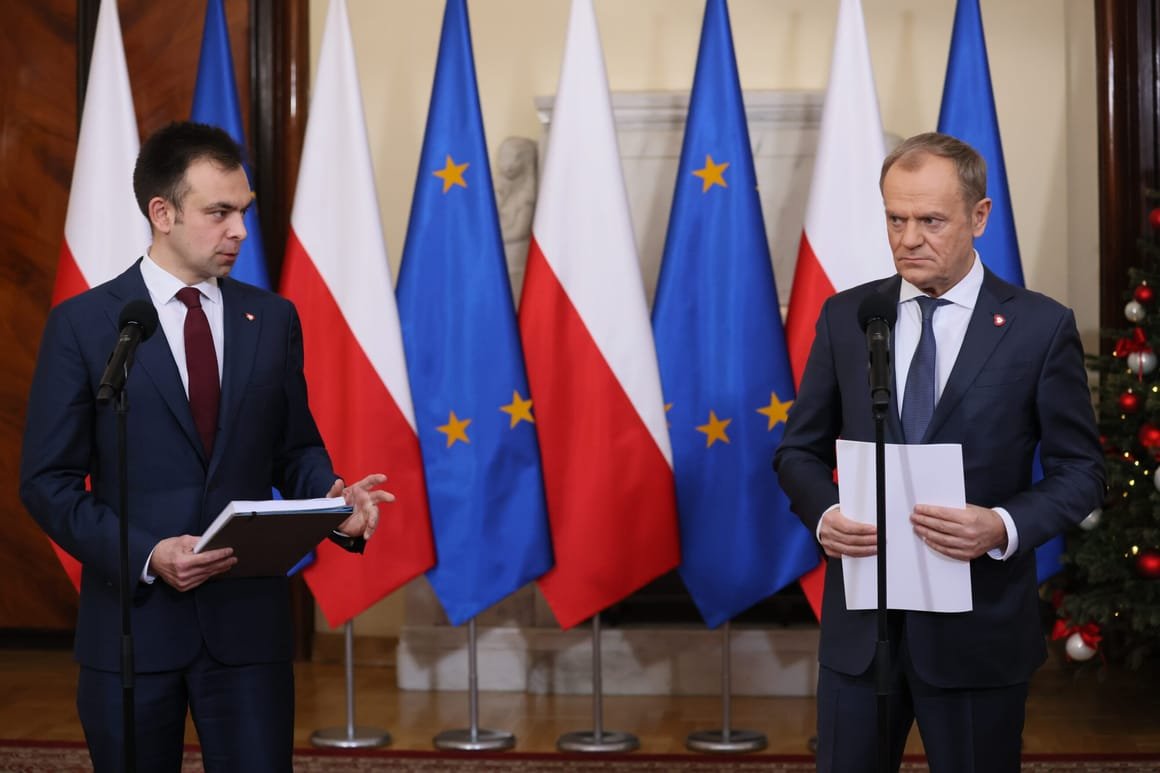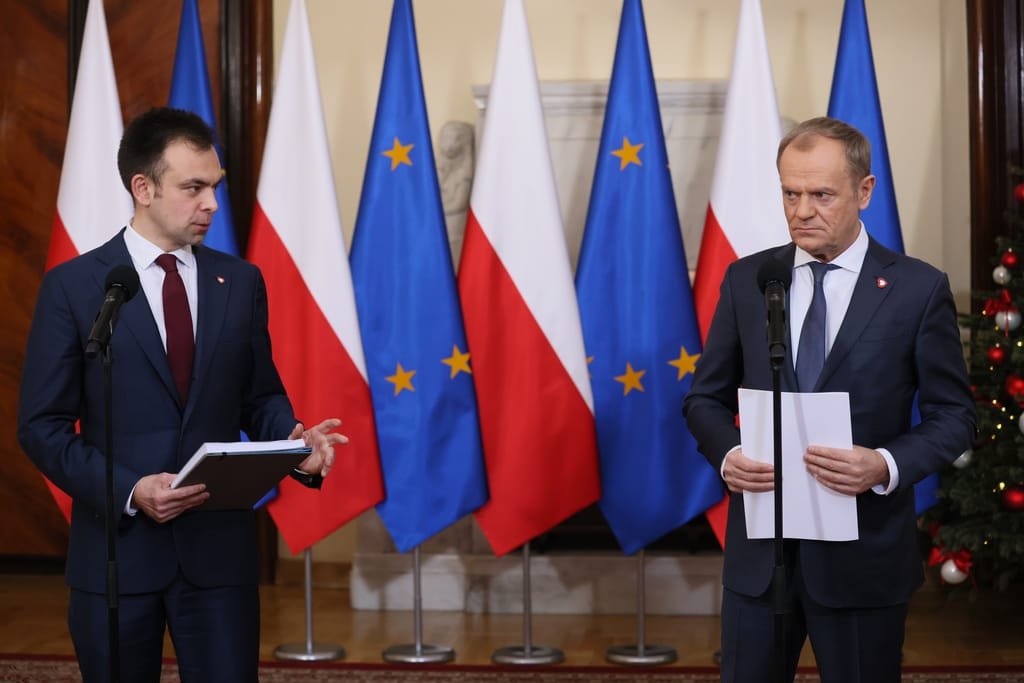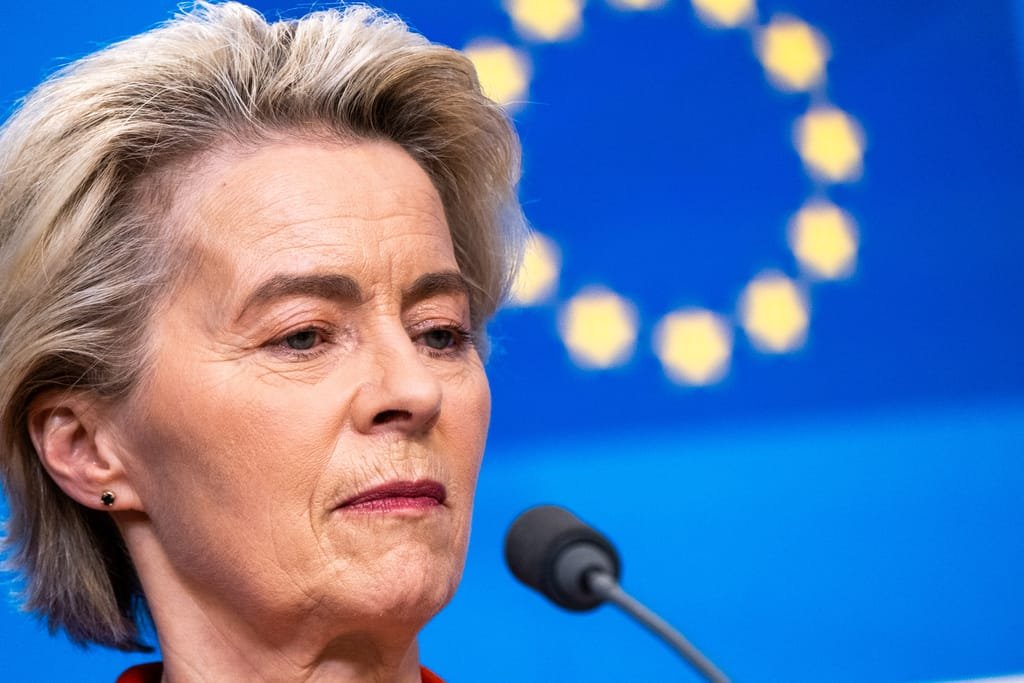The party says the failure to pay its electoral subsidies could land the finance minister in jail.

WARSAW — The financial clouds aren’t lifting from Poland’s opposition Law and Justice (PiS) party after Finance Minister Andrzej Domański this week delayed a decision on whether the party should receive millions of złoty in blocked state subsidies.
That’s a crucial cash infusion that PiS needs ahead of the May 18 presidential election. However, the party ran into trouble last year with the accounting it sent in to the National Election Commission (PKW), an election watchdog that signs off on political party accounts.
The PKW rejected PiS’s report covering the finances of last year’s parliamentary election campaign and the party’s overall financial statement for 2023 in two decisions issued in August and November.
PiS appealed against the August decision to Poland’s Supreme Court. However, the party lodged the appeal with a chamber of the court that the country’s centrist government feels is stacked with judges improperly appointed under the previous PiS government. The chamber’s legitimacy has also been questioned by the Court of Justice of the EU.
The chamber predictably sided with PiS in a ruling issued in December, apparently leaving little room for Domański but to pay out the money.
But the way the PKW issued its decision leaves gray areas. The body said that the Supreme Court chamber’s ruling must be respected, but the watchdog also said that it could not “prejudge” whether the chamber in question was legitimate.
That gave Domański an opportunity not to approve paying out the subsidy to PiS for now. With questions hanging over the legitimacy of the chamber, Domański asked the PKW what it actually meant, the minister said in a letter to the watchdog.
“Taking into account numerous doubts related to the content of [the PKW’s decision], I asked the National Electoral Commission to … clarify the doubts regarding its content,” Domański said in a statement issued Wednesday.
The PKW’s decision is “internally contradictory,” Domański added.
PiS predictably seethed at Domański’s maneuver.
The finance minister is “afraid of [Prime Minister] Donald Tusk’s political ax hanging over him,” PiS MP Paweł Jabłoński told the Polish Press Agency.
Jabłoński also added that Domański “fears legal consequences because he knows he has a legal obligation” to release the funds to PiS.

Domański fired back in a TV interview. “I am not afraid of PiS,” he said, adding: “Threats and blackmail from PiS do not make an impression on me and will not prevent me from carrying out my constitutional duties.”
The issue is also splitting the electoral commission.
Krzysztof Mąkowski, appointed by PiS, on Thursday called on Domański to pay the subsidy or face jail. “There is nothing to discuss, the resolution is legal!”
But Ryszard Kalisz, appointed to the PKW by the current ruling coalition, called the dispute over the status of the judges on the Supreme Court chamber “legal chaos” that’s the result of PiS trying to change Poland’s judicial system when it was in power.
The question of the subsidy could weigh on PiS’s presidential campaign. The party has so far relied on donations from supporters but it also made clear that without the subsidies, the effectiveness of its campaign could be hampered.
PiS hopes that winning the presidency would allow it to continue thwarting Tusk’s agenda, which could help the party regain power in the next parliamentary contest.
The party has fielded historian Karol Nawrocki as its presidential candidate.
Nawrocki trails in the polls to Warsaw Mayor Rafał Trzaskowski, the candidate of Tusk’s party, the Civic Coalition — but is widely expected to make it to the run-off vote on June 1. Trzaskowski is a clear favorite to win the run-off vote, too.




